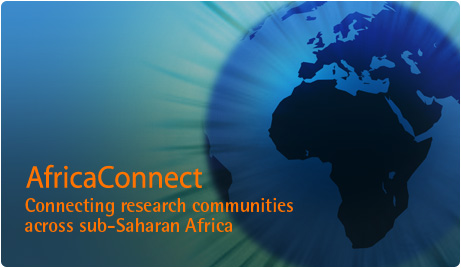Although the use of Information and Communication Technologies by citizens and governments in Africa is growing exponentially, there is limited evidence of how these technologies are affecting statebuilding and peace building on the continent. Where such evidence exists, it is often in diverse locations and hard to reach for researchers, practitioners, the media and government bodies.
In order to increase access to information on ICTs in Africa, the Centre for Global Communications Studies (CGCS) at the University of Pennsylvania has launched a new website that offers news and updates on research and events related to ICTs, peace building and governance. The portal features a repository of reports and articles with empirical evidence on the role of ICTs in peace building and governance.
In addition, the website offers access to articles typically blocked by journal paywalls by obtaining pre-print versions of articles from authors.
As a partner in CGCS’s project titled “Reframing Local Knowledge: ICTs, State building, and Peace building in Eastern Africa”, CIPESA undertook a review of literature on the role of ICTs in governance, peace-building and state-building in Africa, with a focus on three neighbouring countries: Ethiopia, Kenya, and Somalia.
An increasing number of Africa’s estimated one billion people are accessing modern communication technologies. According to the International Telecommunications Union, as of 2013, internet penetration stood at 16% and mobile access at 63% of Africa’s population.
It follows that online service provision, placing a wide array of information in the public domain, an empowered citizenry that holds leaders to account and smartly embrace ICT, could potentially catalyse peace, democracy and good governance in Africa.
There is a considerable amount of research by scholars, government agencies, civil society, development partners and many more on the use of ICTs in governance in Africa, covering a broad range of definitions and dimensions. A central place to find this research has hitherto been lacking, which is why scholars, practitioners and public officials will find the new portal a vital resource.
The work for the project is being carried out in collaboration with the Programme in Comparative Media Law and Policy (PCMLP) at the University of Oxford, the Centre for Intellectual Property and Information Technology at Strathmore University (Kenya), the School of Journalism and Communication at Addis Ababa University (Ethiopia), CIPESA, The Heritage Institute for Policy Studies and SIMAD University (Somalia).
Read more about the project here.
Launch of AfricaConnect, the Regional Connectivity Ramp-up Initiative
 The 2012 Africa-Euro Cooperation Forum on ICT saw the European launch of AfricaConnect, a high-capacity internet network for academic and scientific collaboration for sub-Saharan Africa.
The 2012 Africa-Euro Cooperation Forum on ICT saw the European launch of AfricaConnect, a high-capacity internet network for academic and scientific collaboration for sub-Saharan Africa.
The AfricaConnect project has seen the establishment of UbuntuNet, a high-capacity regional data network for academic and scientific collaboration in East and Southern Africa, and improved the volume and reliability of connectivity within the region and to the global research and education community.
The specific fields of research activities for the network are Health, Bio-Medical Sciences, Climate, Agriculture, Education and Environment.
Launched in Africa two weeks ago on November 15 at the UbuntuNet 2012 conference held in Dar es Salaam, Tanzania, the network connects the Democratic Republic of Congo, Ethiopia, Kenya, Malawi, Mozambique, Namibia, Rwanda, Somalia, Sudan, South Africa, Tanzania, Uganda and Zambia. It also connects African and European partners via GÉANT, the pan-European (Germany, Italy, Portugal, Ireland and Netherlands) research and education network.
Speaking at the launch, Dr. Francis Tusubira, CEO of the UbuntuNet Alliance, stated that the network is not only intended to help science, but “change lives”.
“We can not forget that this is not only about networks. It is about people and the change we can bring to communities,” said Dr. Tusubira.
He added that borrowing from the meaning of the word Ubuntu, the project is centred around mutual responsibility in community welfare and people committing to change to “remove the isolation of researchers in Africa.”
AfricaConnect is intended to enable researchers and academics in Africa to collaborate seamlessly with each other and with research and education institutions around the world. The network supports data-intensive and time critical applications, provides fast access to web-based resources enabling research centres and universities across the region to participate in joint projects.
The project is funded by the European Commission and African partners in collaboration with DANTE (Delivery of Advanced Network Technology to Europe) and the Ubuntu Alliance.
Further information is available at www.africaconnect.eu


